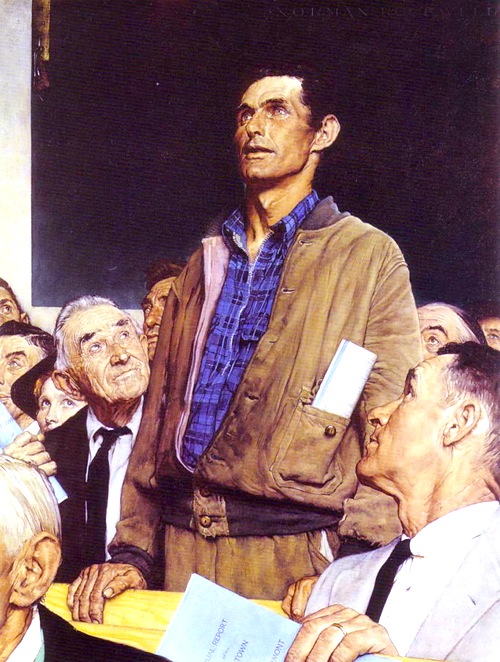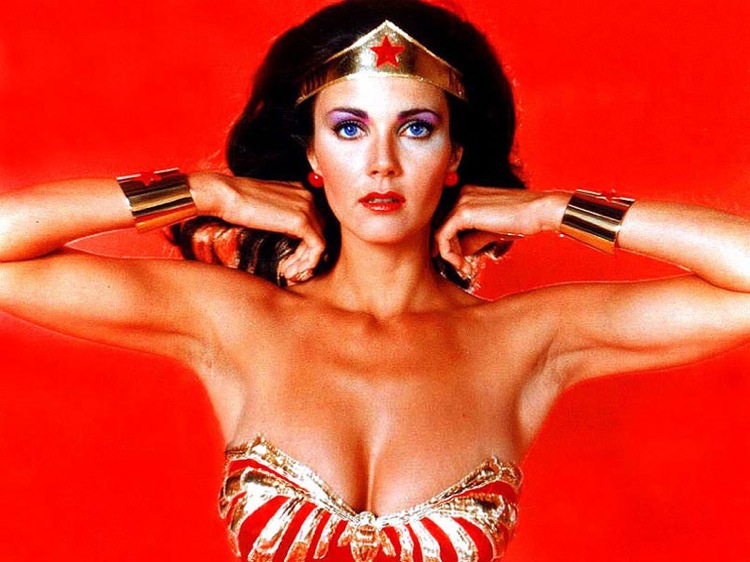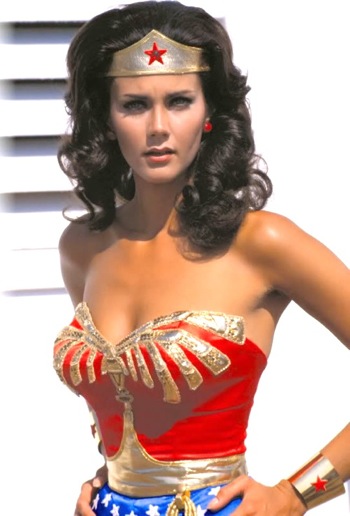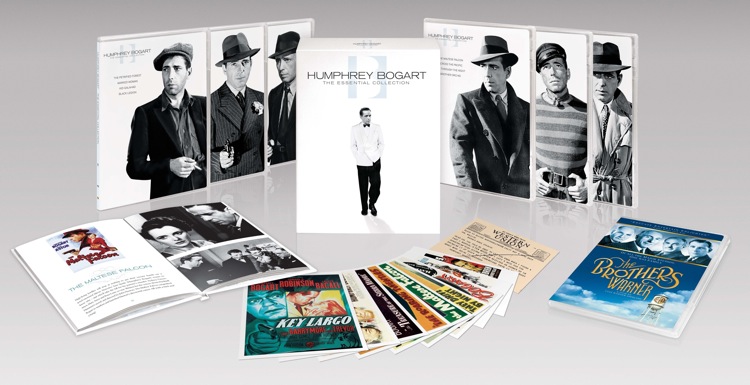
By Jason Apuzzo. I thought it would be appropriate on this day, the Fourth of July, to mention a new exhibit that just opened of Norman Rockwell’s paintings being put on in Washington D.C. at the Smithsonian American Art Museum, entitled “Telling Stories.” The exhibition features 57 major Rockwell works held by George Lucas and Steven Spielberg, who are among the most significant collectors of Rockwell’s work. The exhibit explores Rockwell’s connections to the movies, and also his thematic legacy by way of Lucas and Spielberg’s films. You can read Ted Johnson’s nice article on this exhibit in Variety.
Something that we talk about a great deal here at Libertas is the portrayal of America and what is perhaps its defining attribute – the freedom of its citizens – in film and popular media. Occasionally this is something that is expressed in film in a literal way, in terms of a film’s overt political agenda. More often, however, it’s something that is communicated in a general feeling one gets about whether a filmmaker harbors affectionate feelings toward America and its people.
I happen to think this basic sort of affection or warmth toward America and its people is something that radiates from Lucas and Spielberg’s work when they’re at their best. One thinks here in particular of Lucas’ American Graffiti, with its Capra-esque portrayal of small town California – or of Luke Skywalker, the paradigmatic American farm boy-hero from the original Star Wars. And has there ever been a more stirring invocation of small-town American entrepreneurialism and innovation than Lucas’ film, Tucker: The Man and His Dream? I doubt it. The film, which Lucas made with his friend and fellow innovator Francis Coppola, is a personal favorite of mine.
In Spielberg’s case, almost his entire career has been an exercise in portraying the American Everyman (for which Spielberg endured an enormous amount of criticism early in his career) – from Duel through to Close Encounters of the Third Kind, Saving Private Ryan and beyond. Even in their most recent collaboration, Indiana Jones and the Kingdom of the Crystal Skull, you feel this same sort of affection for America and Americana … particularly in Crystal Skull‘s fun, romanticized approach toward the 1950s, rock-and-roll, Marlon Brando-style motorcycle culture, and Cold War anti-communism. Continue reading George Lucas & Steven Spielberg Present New Norman Rockwell Exhibit



